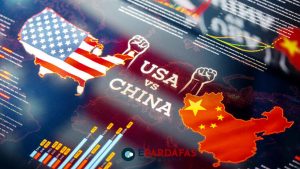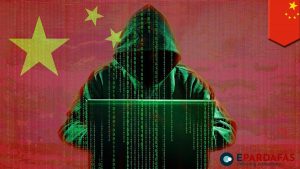
Bipartisan Lawmakers Looking to Formally Criminalize CCP’s Transnational Repression

A bipartisan panel of lawmakers are looking for ways to formally criminalize the Chinese regime’s transnational repression to protect critics of the Chinese Communist Party (CCP) on U.S. soil.
The issue came under the spotlight at a Dec. 13 evening hearing held by the House Select Committee on the CCP, where witnesses took the platform to attest to the harassment and assault the Chinese regime has carried out in the United States.
The various forms of the Chinese regime’s abuses and the extensive network of its enablers have created a climate of fear that follows them wherever they go, the witnesses said.
“No matter where in the world you are, even in the most mature democracies with the longest traditions of civil liberties, you’re never free as long as anyone or anything you’ll care about is under the control of the CCP,” Zhang Jinrui, a Georgetown law student, said at the hearing.
Like many others, Mr. Zhang had long hidden his views against “CCP authoritarianism and its many past atrocities” for fear of retaliation. But in late 2022, a high-rise building fire in Urumqi that had been locked down because of the regime’s draconian COVID-19 restrictions changed him. That fire caused at least 10 deaths, including a 3-year-old—“not because the fire was extraordinarily powerful” but because they were trapped and the fire truck couldn’t get into the locked building, he told the audience at a House Select Committee on the CCP hearing.
While giving out flyers about the regime’s repressive policies on campus, a pro-CCP Chinese student rebuked him and tried to report him to the Chinese police. Retaliation then followed.
From June to November, Chinese police harassed Mr. Zhang’s family, dragging his father away for interrogation and only letting him go on the condition that he would make Mr. Zhang “love the Chinese Communist Party more,” he told NTD, a sister media of The Epoch Times.
“I’m very certain that there will be a fifth time because of my presence here tonight,” he told the audience at the hearing.
Anna Kwok, executive director of the Hong Kong Democracy Council, recalled seeing suspicious-looking men with Chinese military-style haircuts and earpieces during the Asia-Pacific Economic Cooperation (APEC) summit in November. They stalked her and others on the streets of San Francisco as they protested outside Chinese communist leader Xi Jinping’s event venue.
Advocacy group Human Rights in China documented over 10 people bloodied and three hospitalized due to assault from the pro-CCP groups.
Lawmakers from the committee said they want to look into federal laws on how to stop such conduct.
While the Justice Department has prosecuted a number of cases related to transnational repression, lawmakers from the committee see a gap in law enforcement oversight that too often allowed the Chinese agents to get their way.
Rep. Raja Krishnamoorthi (D-Ill.), ranking member of the committee, observed that federal prosecutions on perpetrators of transnational repression have relied on laws regarding stalking and foreign agent registration.
“It would seem to me that Congress needs to formally define and criminalize” transnational repression, he said at the hearing.
Sophie Richardson, an expert on China’s human rights issues, echoed his point.
“I think too much is left uncriminalized,” she said. “And so to clarify that law, I think would be helpful.”
To Rep. Mike Gallagher (R-Wis.), the committee’s chairman, deterring such activities is a multipronged effort that, in part, involves educating law enforcement and demanding they take action.
“Assaulting someone is illegal,” he told The Epoch Times. “It’s just a question of whether law enforcement is tracking this and actually, proactively tackling it.”
Rep. Dusty Johnson (R-S.D.) said the hearing has demonstrated “how deep and how comprehensive this repression is.”
“There are limits to how much you can bully or intimidate someone,” he told The Epoch Times, adding that he hopes that starting a conversation about criminalizing such conduct could encourage more dissidents to step forward and “send a clear message to the Chinese Communist Party, that this is unacceptable.”
“We know that there can be high-ranking officials who are directing, in a systemic way, this kind of transnational repression. We then let the senior officials travel to the United States to do diplomatic work, and we don’t hold them accountable. But we need to send a clear message, whether that’s through sanctions efforts or through legal efforts, that you cannot be a kingpin of this kind of organized crime and get away with it,” he told NTD.
Rep. Jim Banks (R-Ind.) drilled into the issue during the hearing, citing a student from Purdue University who faced harassment for posting a letter online honoring those who protested at Beijing’s Tiananmen Square in 1989.
He asked Mr. Zhang whether the United States should revoke visas of students who help spy on and report their peers who express dissenting views toward Beijing, block Chinese and other foreign diplomats for engaging in transnational repression, remove the Chinese Students and Scholars Association (CSSA)—a student group present on virtually every U.S. college campus that directly liaises with the local Chinese consulates—and have the association register as a foreign agent. To all of them, Mr. Zhang answered in the affirmative.
“They are enjoying the protection of the systems of our universities, but they are trying to undermine that. So I think that is fair,” he said on the point of banning CSSA.
Several other committee members are on board with such measures.
“The greatest perpetrator of hate crimes against Asian Americans that I’ve witnessed here is the CCP,” Rep. Andy Barr (R-Ky.) told The Epoch Times.
Carrying out harassment to aid the regime’s coercion, he suggests, has an additional dimension of criminality and should receive a harsher penalty.
Rep. Michelle Steel (R-Calif.) agreed.
“We have to vet all those diplomats coming in, we have to vet all those people coming in, when they actually commit any crimes or any oppressions to fellow students, then we cancel their visas,” she told The Epoch Times. “We have to be really strict about who we receive here, and what we do when they go against our freedom, or you know, any people’s free speech.”
What legislative measures could come out of it remains an open question, but the committee is unambiguous about its direction.
“I don’t think you should be able to establish a non-profit or some innocuous sounding entity that is effectively controlled by [the] United Front Work Department and then use that as a platform to surveil and harass people on American soil,” Mr. Gallagher said, referring to the communist agency facilitating Chinese influence operations overseas. “Whether that’s already a violation of existing law is something that we’re going to have to determine as we try and legislative solution going forward.”
The State Department voiced support for freedom of expression but wouldn’t go into details when asked about the attacks toward anti-CCP protesters.












Comments